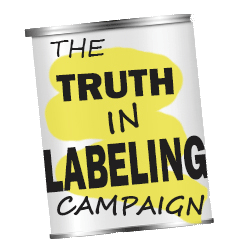For those of you who think “Chinese restaurant syndrome” or “migraine headache” when you think of MSG, it’s time to think again.
Instead, think brain damage, neurodegenerative disease, atrial fibrillation, seizures, and stroke, and put down that so-called “food” loaded with chemicals and flavor enhancers.
Then consider attention-deficit/hyperactivity disorder (ADHD), muscle pain and autism, and don’t allow your children or grandchildren to consume snacks, protein drinks, or processed foods loaded with MSG.
The database at the National Library of Medicine (at pubmed.gov) testifies to the fact that there are abnormalities, disease and disability, with which MSG is associated. As of November 8, 2019, 3,049 citations were returned when “monosodium glutamate-induced” was searched. From that source we know that at minimum, diabetes, muscle pain, atrial fibrillation, ischemia, trauma, seizures, stroke, headaches, asthma, Alzheimer’s disease, amyotrophic lateral sclerosis (ALS), Huntington’s disease, Parkinson’s disease, depression, multiple sclerosis, schizophrenia, obsessive-compulsive disorder (OCD), epilepsy, addiction, attention-deficit/hyperactivity disorder (ADHD), frontotemporal dementia, and autism are conditions with which glutamate circulating within the body has been found to be associated.
Pressure from agents of the glutamate industry to keep any suggestion of MSG toxicity out of the media and out of the medical literature has been remarkably successful. Not since 1991, when 60 Minutes ran a story about MSG , has there been mention in any major media in the U.S. dealing with MSG that was not approved by the glutamate industry. (In contrast, the same has not been true of India and Pakistan where use of MSG in food is banned.)
And while there are studies related to the toxicity of glutamate, with the exception of John Olney’s work there has been little consideration that the ingestion of MSG might play a role in the creation of abnormalities, except in studies done outside of the U.S. By and large, it has only been MSG research that proclaims the safety of MSG that has been published in medical journals.
If you’re reading the medical literature and are one of the rare people who might read through an entire study, you’ll sometimes find warnings of the toxic effects of MSG. A few studies that include warnings are listed below:
Does high glutamate intake cause obesity? Germany
Obesity, voracity, and short stature: the impact of glutamate on the regulation of appetite. Germany
Potential target sites in peripheral tissues for excitatory neurotransmission and excitotoxicity. Canada
Chinese restaurant syndrome: a review. USA
How much glutamate is toxic in paediatric parenteral nutrition? Germany
Monosodium glutamate (MSG): a villain and promoter of liver inflammation and dysplasia. Japan
Association of monosodium glutamate intake with overweight in Chinese adults: the INTERMAP Study. USA
Extensive use of monosodium glutamate: A threat to public health? Italy
Excitotoxic food additives–relevance of animal studies to human safety. USA
The toxic effects of glutamate and related compounds in the retina and the brain. USA
Excitotoxic food additives–relevance of animal studies to human safety. USA
Excitatory neurotoxins as food additives: an evaluation of risk. USA
Monosodium glutamate induced testicular lesions in rats (histological study) Nigeria
Now think about this: If MSG wasn’t harmful, it wouldn’t be hidden.
If you have questions or comments, we’d love to hear from you. If you have hints for others on how to avoid exposure to MfG, send them along, too, and we’ll put them up on Facebook. Or you can reach us at questionsaboutmsg@gmail.com and follow us on Twitter @truthlabeling.


